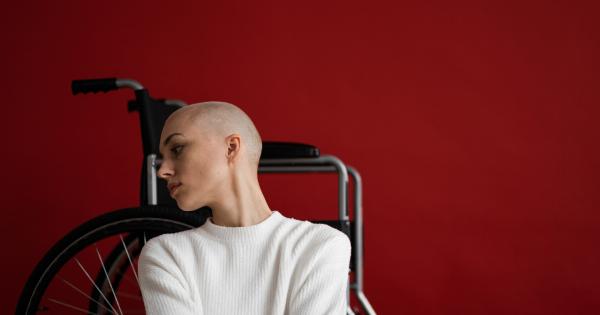Baldness is a common condition that affects millions of people worldwide. It is usually associated with aging, but it can occur in younger people as well. Early-onset baldness refers to hair loss that occurs before the age of 30.
While it is typically seen as a cosmetic issue, recent studies have linked early-onset baldness with an increased risk of certain types of cancer.
What is Early-Onset Baldness?
Early-onset baldness, also known as premature alopecia, is a condition characterized by hair loss that starts before the age of 30.
The condition can be caused by a variety of factors, including genetics, hormonal imbalances, stress, and certain medications. In many cases, early-onset baldness is a hereditary condition, passed down from parent to child.
Early-onset baldness is more common in men than women. It affects approximately 30% of men by the age of 30 and 50% by the age of 50. Women are less likely to experience early-onset baldness, but it can still occur in some cases.
Link Between Early-Onset Baldness and Cancer Risk
Recent studies have shown a link between early-onset baldness and an increased risk of certain types of cancer.
Specifically, men who experience early-onset baldness are more likely to develop prostate cancer, while women are more likely to develop breast cancer.
The exact mechanism behind the link between early-onset baldness and cancer is not yet fully understood. However, some researchers believe that it may be due to hormonal imbalances.
For example, early-onset baldness is often caused by higher levels of androgens, which are male sex hormones. These hormones can also fuel the growth of certain types of cancer cells, including prostate and breast cancer cells.
Another theory suggests that early-onset baldness may be a sign of overall poor health. For example, people who experience early-onset baldness may be more likely to have other risk factors for cancer, such as a poor diet or sedentary lifestyle.
Reducing Cancer Risk in Early-Onset Baldness
If you experience early-onset baldness, there are steps you can take to reduce your risk of developing cancer. These include:.
: Eating a Healthy Diet
Eating a diet rich in fruits, vegetables, and whole grains can help reduce your risk of cancer. These foods are high in fiber and antioxidants, which can help protect your cells from damage.
: Exercising Regularly
Regular exercise can help reduce your risk of cancer. It can also help improve your overall health and reduce your risk of other chronic conditions, such as heart disease and diabetes.
: Getting Screened
Regular cancer screenings can help detect cancer early, when it is most treatable. For example, men over the age of 50 should get regular prostate cancer screenings, while women over the age of 50 should get regular breast cancer screenings.
: Reducing Stress
Stress can have a negative impact on your overall health. Finding ways to reduce stress, such as practicing mindfulness or meditation, can help improve your overall well-being and reduce your risk of cancer.
Conclusion
Early-onset baldness is a common condition that affects millions of people. While it is usually seen as a cosmetic issue, recent studies have linked early-onset baldness with an increased risk of certain types of cancer.
If you experience early-onset baldness, taking steps to reduce your risk of cancer, such as eating a healthy diet, exercising regularly, getting screened, and reducing stress, can help improve your overall health and well-being.



























